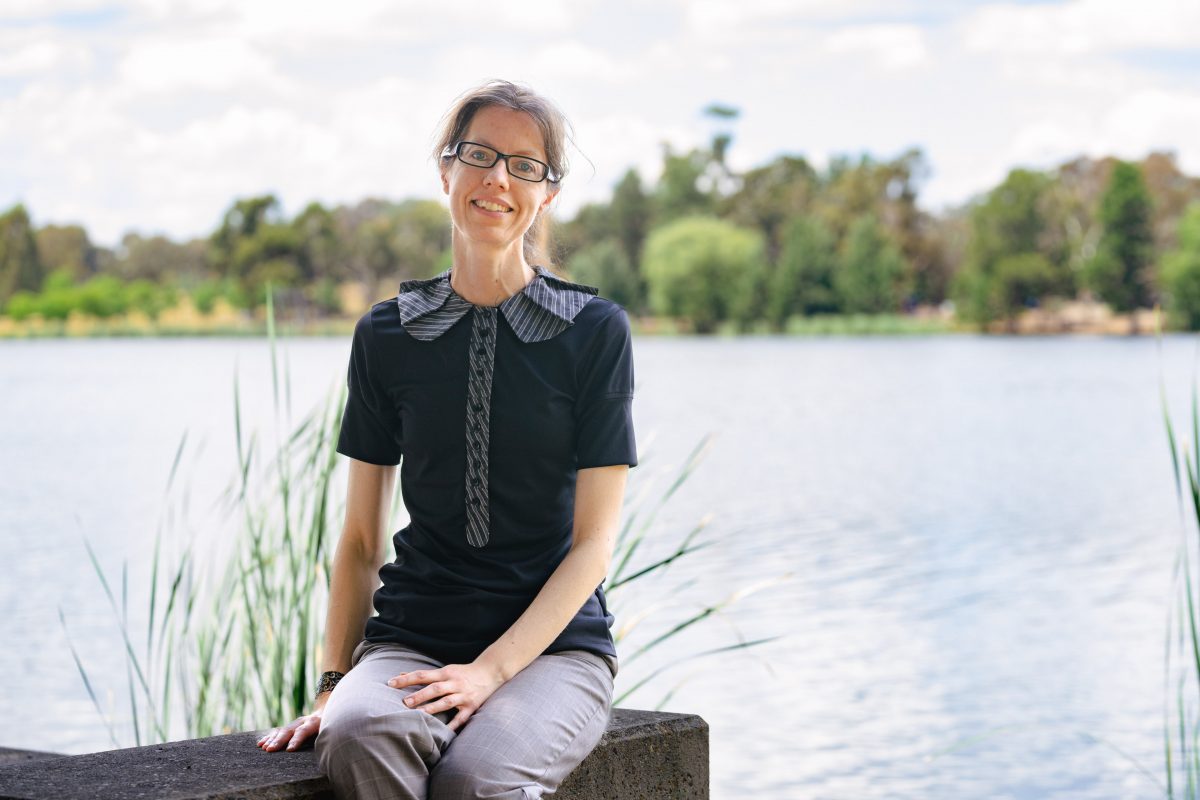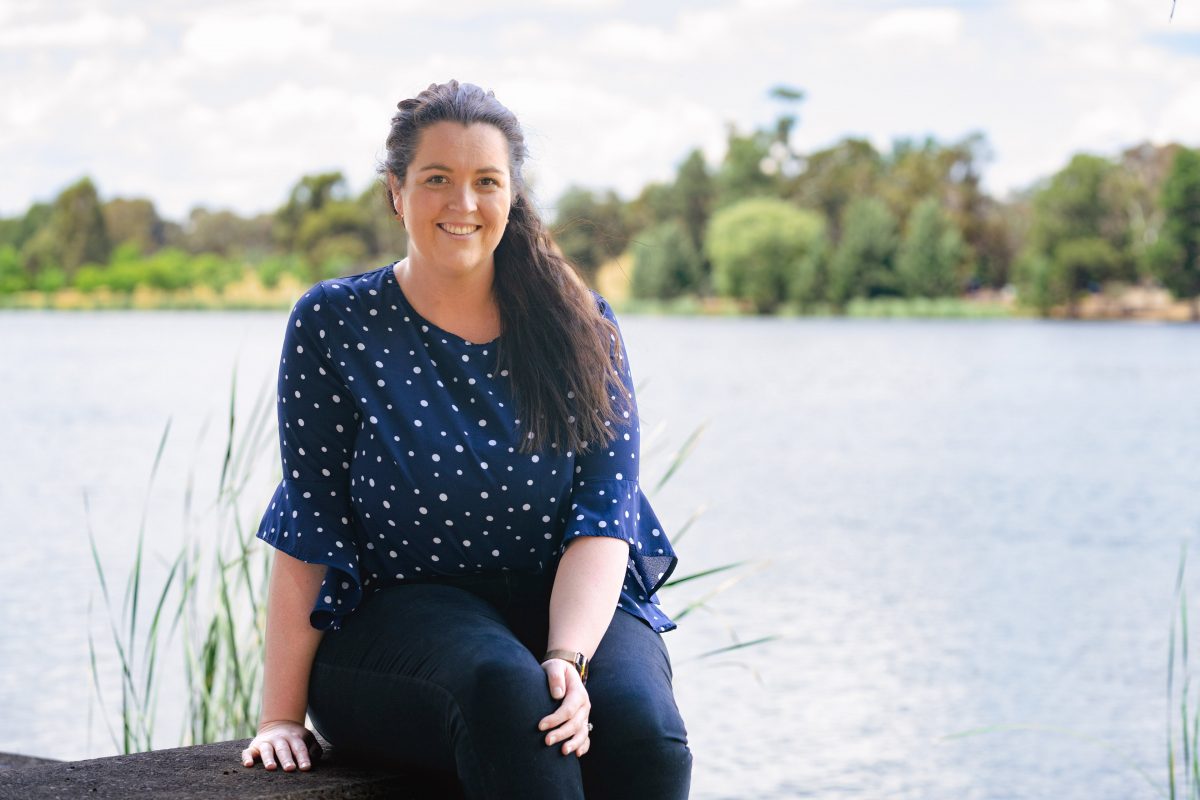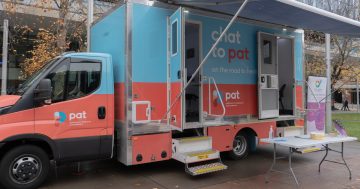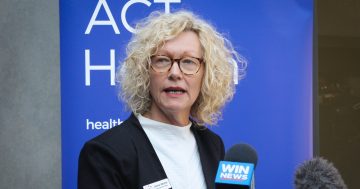
Mental Health Community Coalition ACT Acting CEO Corinne Dobson said the government should immediately commit to renewed funding for the Commonwealth Psychosocial Support Program. Photo: Liv Cameron.
According to the peak body representing the ACT’s community-managed mental health sector, uncertainty around renewed government funding is stalling services proven to help people tackle severe mental health challenges.
Mental Health Community Coalition ACT has called for an immediate commitment to continued funding for the Commonwealth Psychosocial Support Program (CPSP), which has provided $171.3 million to the sector over two years as part of the National Mental Health and Suicide Prevention Plan.
With the funding set to end in June 2023, Mental Health Community Coalition ACT Acting CEO Corinne Dobson said the lack of a definitive pledge from the Commonwealth Government had left community services organisations in limbo, with major repercussions for those living with severe mental health concerns.
“The productivity commission estimated there are at least 150,000 Australians with severe and complex ill health who don’t have any access to services,” she said.
“As it stands, we’re already unable to meet the demand for these services. We need more services, not a disruption to the limited services we can offer.”
Ms Dobson said an independent evaluation by the Commonwealth Government in 2021 revealed enormous benefits from the CPSP and recommended increasing lead times for funding confirmation to a minimum of nine months from services delivery.
“It’s disappointing because that was a clear recommendation to come out of the Government’s own findings, yet we have a situation where funding is due to end in June, with no clear indication from the Government about what’s going to happen,” she said.
“Even after the funding is approved, it takes time to flow from the Department [of Health] to the primary health networks before it’s distributed to these services through a tender process, so we’re talking many months.
“We need a guarantee now because, in the meantime, services will be paused, waiting lists will get longer and there’s a great deal of distress and disruption for both the people using the services and the frontline workers administering them.”
Ms Dobson added that failure to fund the CPSP would directly contradict the National Mental Health and Suicide Prevention Agreement.
“The government has acknowledged there is a gap in psychological services and support and is undertaking the necessary analysis and assessment to better understand the extent of unmet need,” she said.
“Under the agreement, they committed to addressing that unmet need once the analysis was completed, and in the meantime, to continuing funding for existing programs.
“That agreement is very clear, and abiding by the commitments they made would mean clearly indicating that funding for the CPSP would continue.”

Woden Community Service Acting Manager of Mental Health Sophie Mayer said funding uncertainty has meant vulnerable people are already being turned away from CPSP-funded programs. Photo: Liv Cameron.
Given the cost of crisis-driven use of the medical system and the impact on the labour market when people suffer mental ill health, Ms Dobson said disruption to the CPSP reflected shortsightedness.
“We know there’s a big gap in the services provided for people with mental health issues, particularly those with severe and complex concerns,” she said.
“When we don’t invest in services like this, and people don’t get timely and appropriate support, we see a significant cost to the government and service systems downstream, and a huge cost at a human level to people with mental ill health, their families and carers.”
Ms Dobson cited a study of hospital admission and emergency department data in South Australia, which revealed a 39 per cent reduction in hospital visits and significantly shorter recovery times for people with access to such services.
“For a relatively modest upfront cost, these services provide enormous benefit to people using them, but also government services and the broader community,” she said.
Woden Community Service is one of two organisations running CPSP-funded services in the ACT, receiving a total of $820,000 yearly.
That compares to the ACT Government spending $61,468,000 on specialised psychiatric units or wards in public acute hospitals in 2019/20.
CPSP-funded supports run by Woden Community Service (WCS) have supported over 300 Canberrans over the past year. Still, Acting Manager of Mental Health Sophie Mayer confirmed that the organisation has “already had to turn vulnerable people away” from entering their CPSP program.
“The need is far greater than its capacity,” she said.
“Apart from the disruption to continuity of care and extended waiting lists, insecure funding has also led to difficulty attracting qualified staff to deliver the kind of therapeutic work we’re doing because we’re forced to give such short-term contracts.
“We need a clear and immediate commitment from the Commonwealth Government to renew funding.”
Anyone experiencing distress can seek immediate advice and support through Lifeline (13 11 14), Kids Helpline (1800 55 1800), or the digital mental health gateway, Head to Health. In an emergency, call triple zero (000).




















